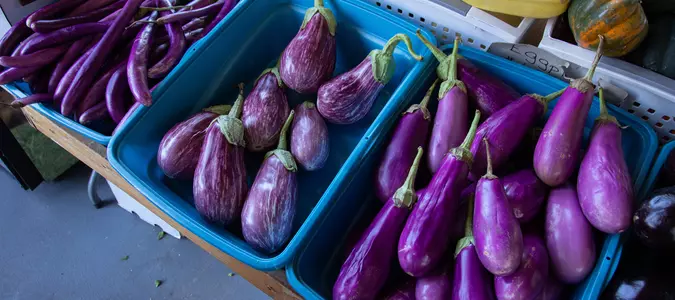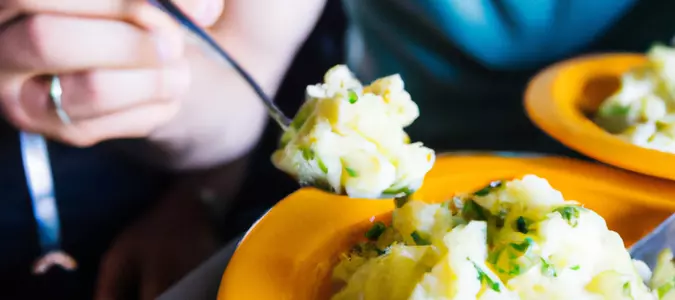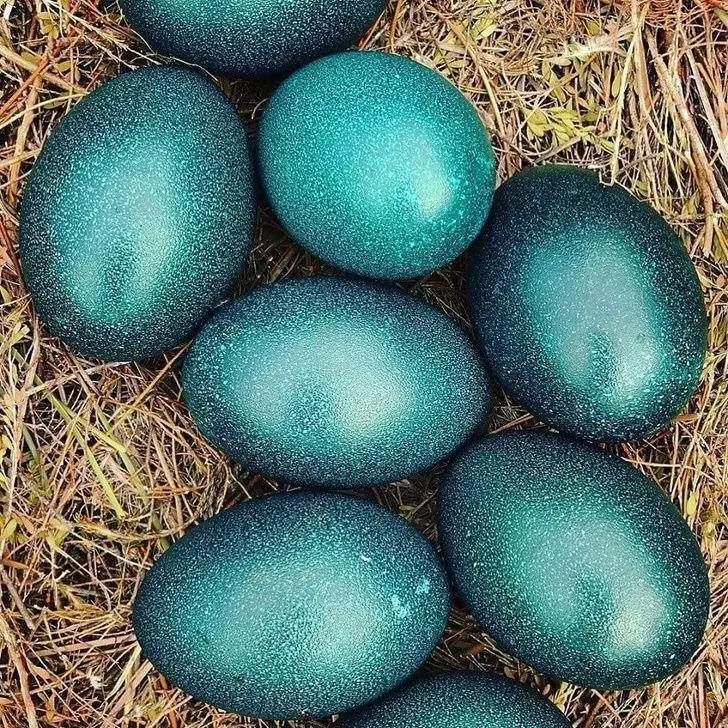

Eggs You Can Eat that Aren't from Chickens
At a regular U.S. grocery store, you’ll see cartons and cartons of chicken eggs, because that’s what most Americans like to eat in the morning with their bacon. We use eggs in many ways, of course, and many of us eat almost exclusively eggs from chickens. But many other fowl produce perfectly delicious eggs that are eaten around the world.
Swipe through to learn more about other types of edible eggs.
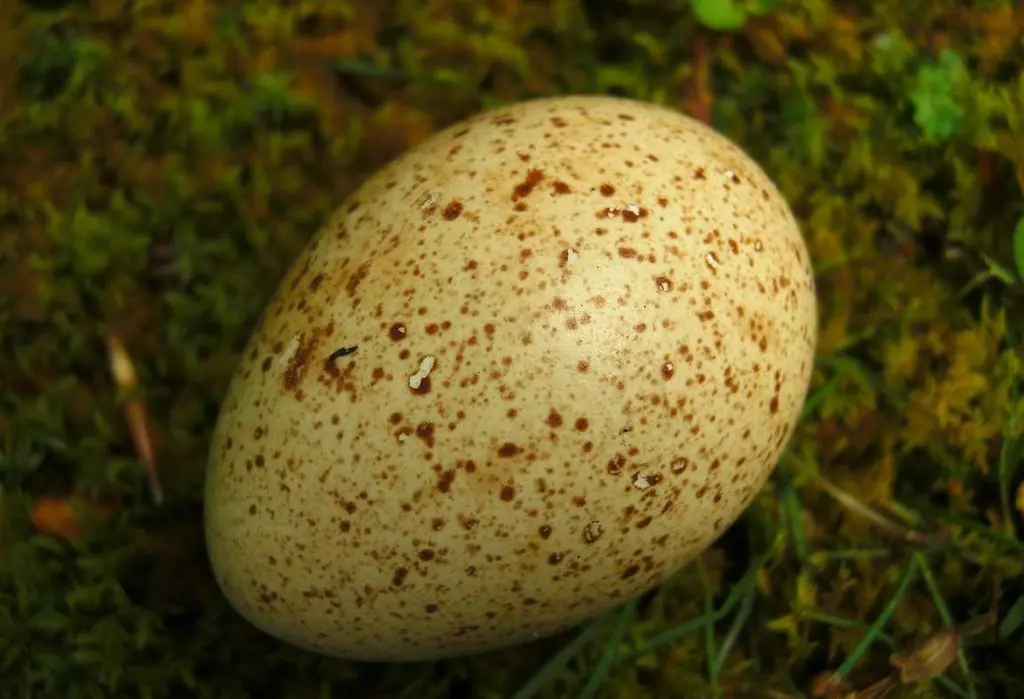
Turkey
Many people like turkey eggs’ large yolk-to-white ratio, making them ideal for poached eggs. These eggs have almost twice the calories, fat and protein of chicken eggs. While they’re not often used these days, many chefs think turkey eggs make richer, more velvety sauces.
Photography: Pinterest/Modern Farmer
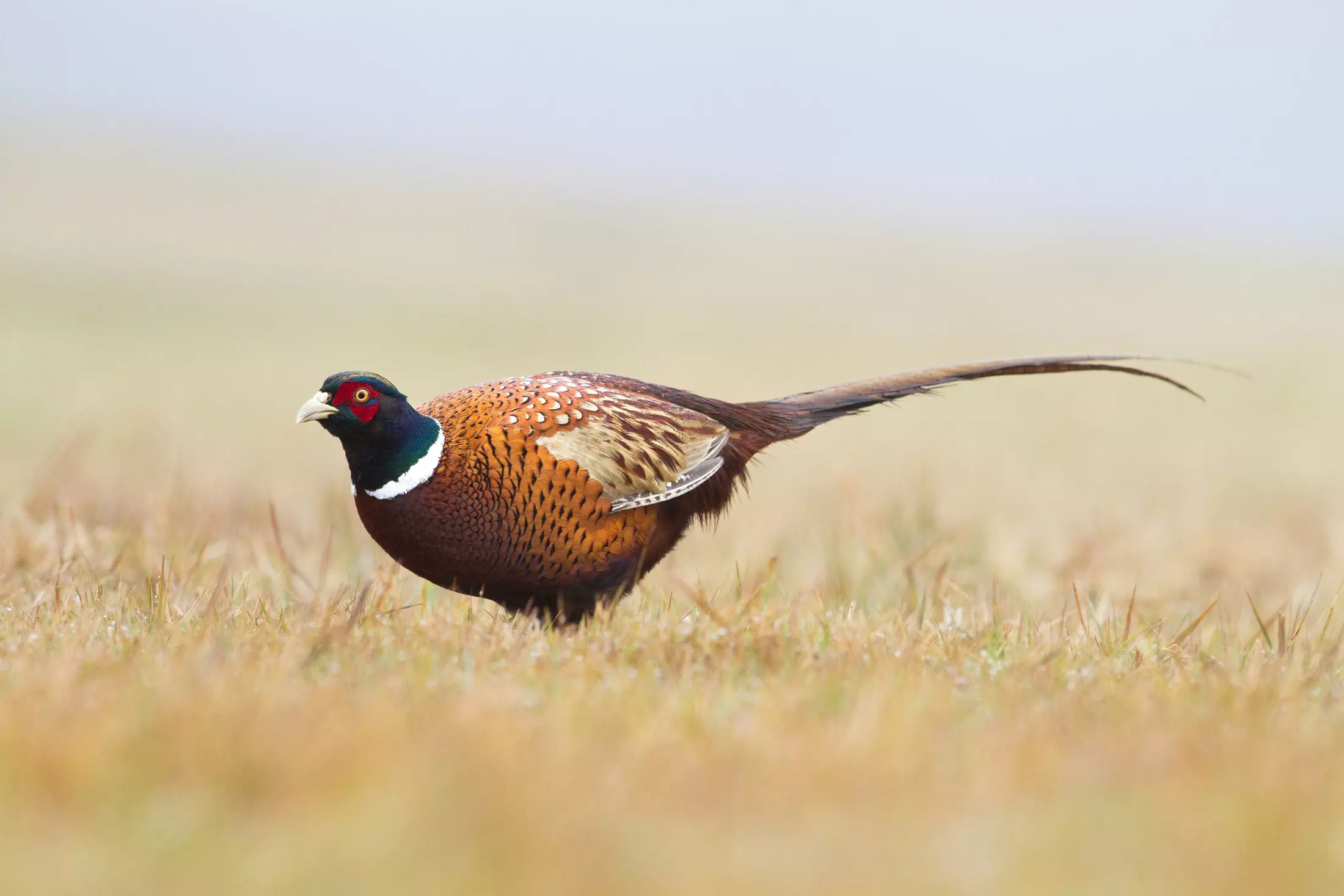
Pheasant
Beautifully colored pheasant eggs are smaller than hen’s eggs but have a similar taste, although some folks detect a slight gaminess. They come in a variety of colors like light and dark brown, olive, and blue. Check farmer’s markets and natural food stores to find pheasant eggs.
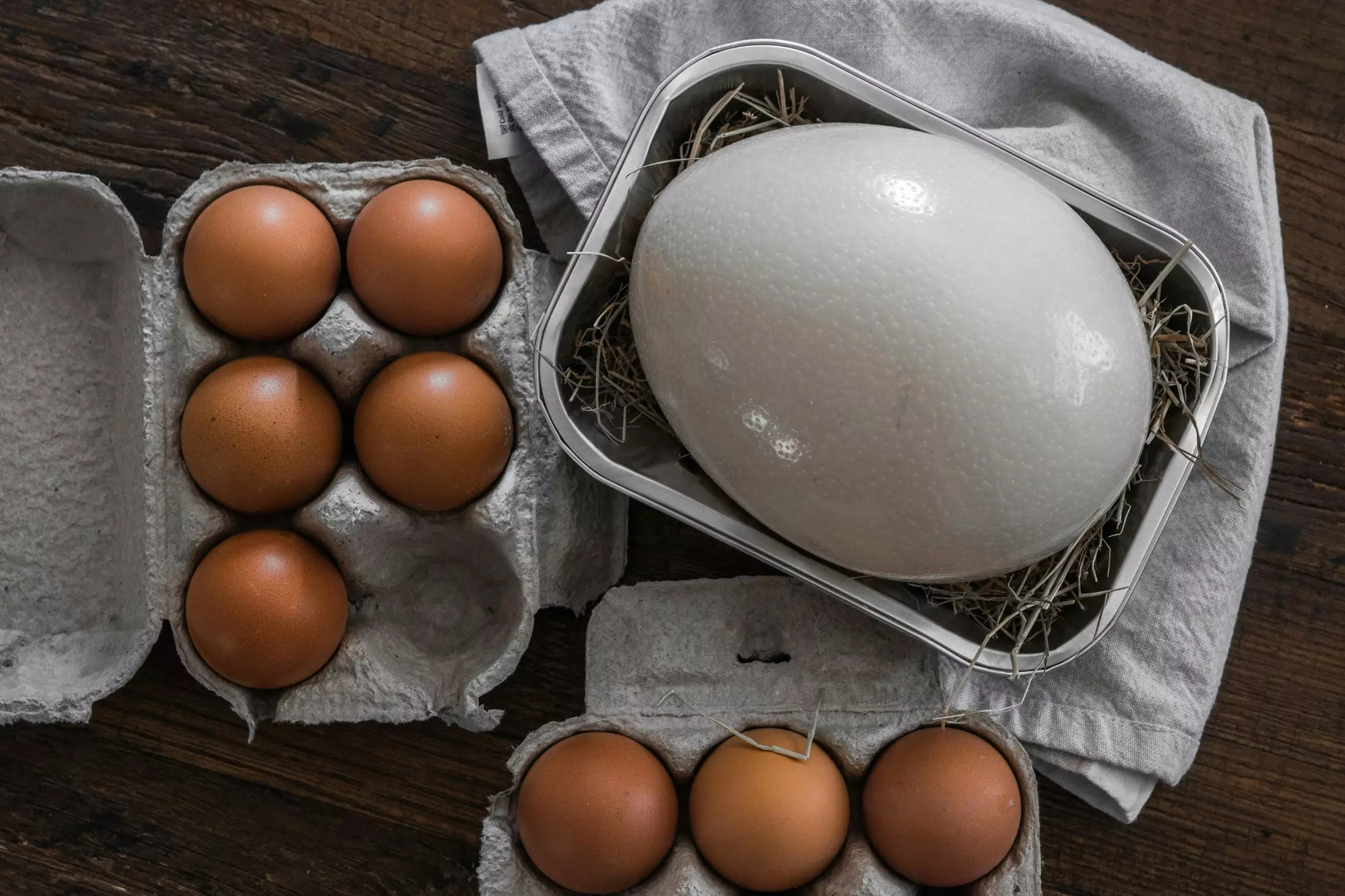
Ostrich
Eggs laid by the ostrich are the largest of any species on the planet, weighing about 3 pounds each—20 times the size of an average chicken egg! Ostrich eggs have a mild, buttery flavor that some describe as gamey. They aren’t widely available in the U.S., but you might find them at specialty farms.
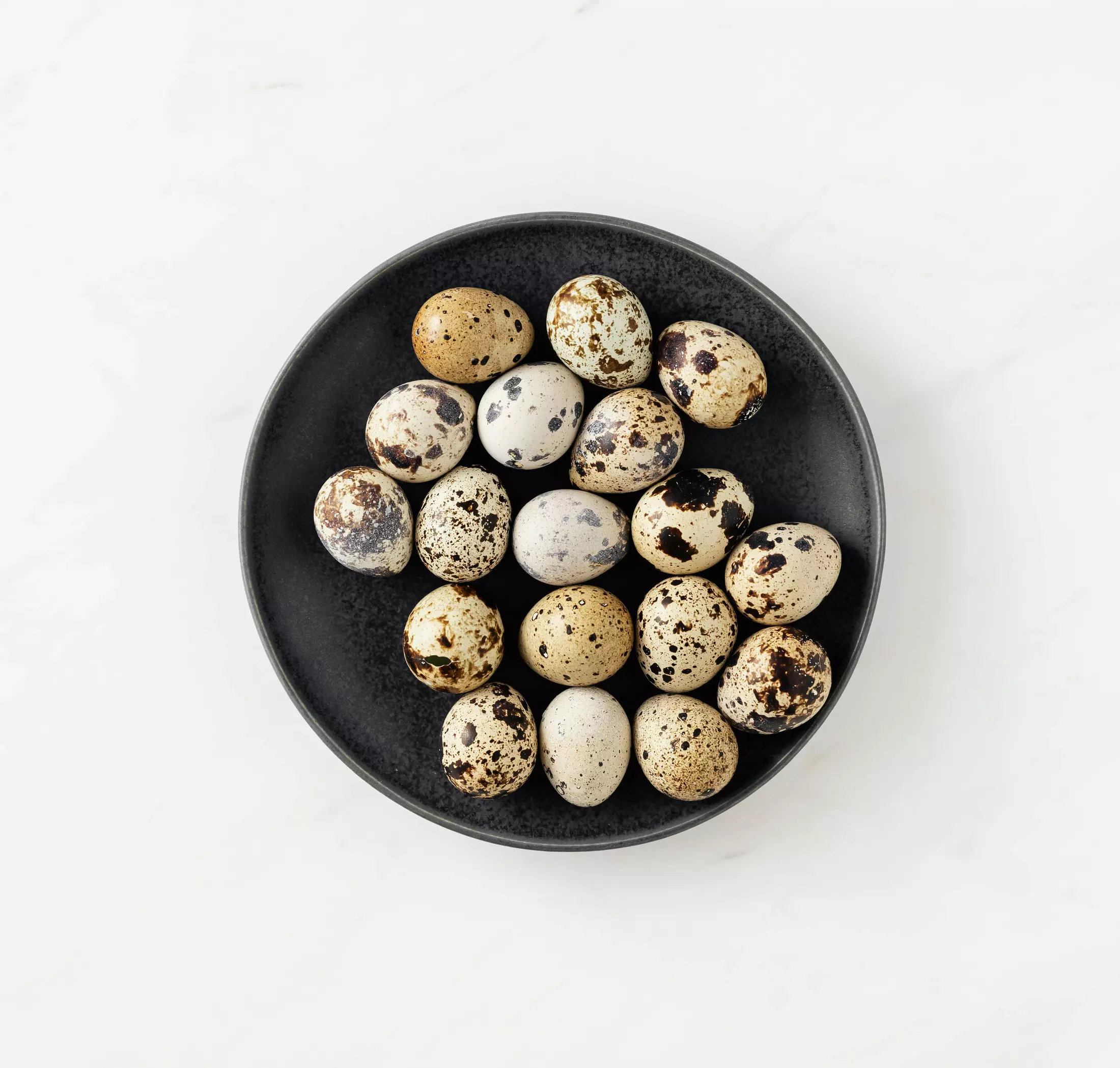
Quail
At many Asian groceries in the U.S., you’ll see quail eggs, the small, spotted eggs that are enjoyed in many parts of Asia and throughout South America. In Japan, they’re often used raw or cooked into tamago—tiny omelettes that are served for breakfast or as part of sushi. In Venezuela, you might find a hard-boiled quail egg topping your hamburger, fixed in place with a toothpick. They have similar nutritional value to chicken eggs.
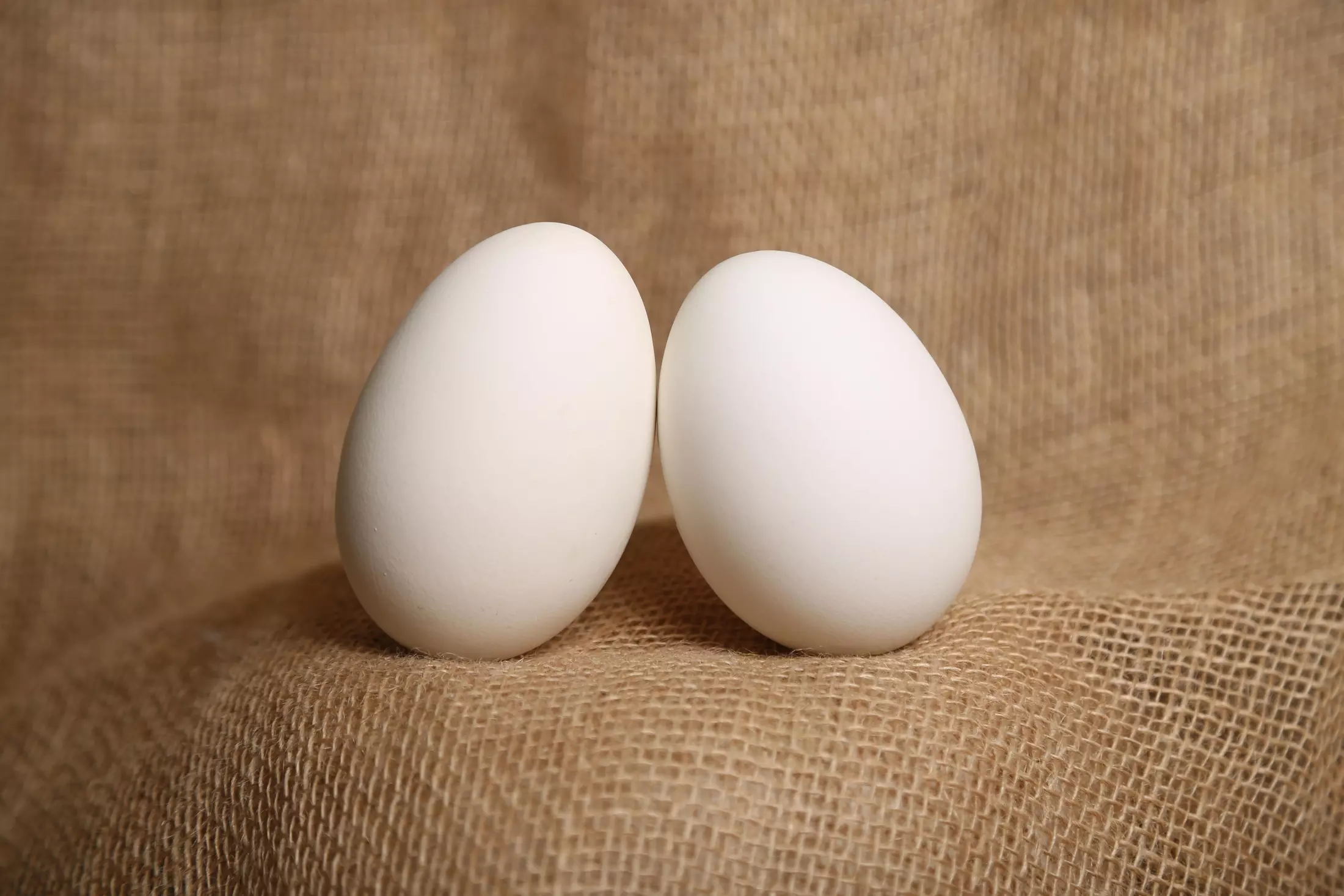
Duck
Duck eggs are more nutritionally dense than chicken eggs, offering more protein, more antioxidants, more omega-3 fatty acids and 50% more vitamins than the eggs we’re familiar with. They have a more intense, richer and creamier flavor than chicken eggs, too. You might be able to find duck eggs at Asian or farmer’s markets or at natural food stores.
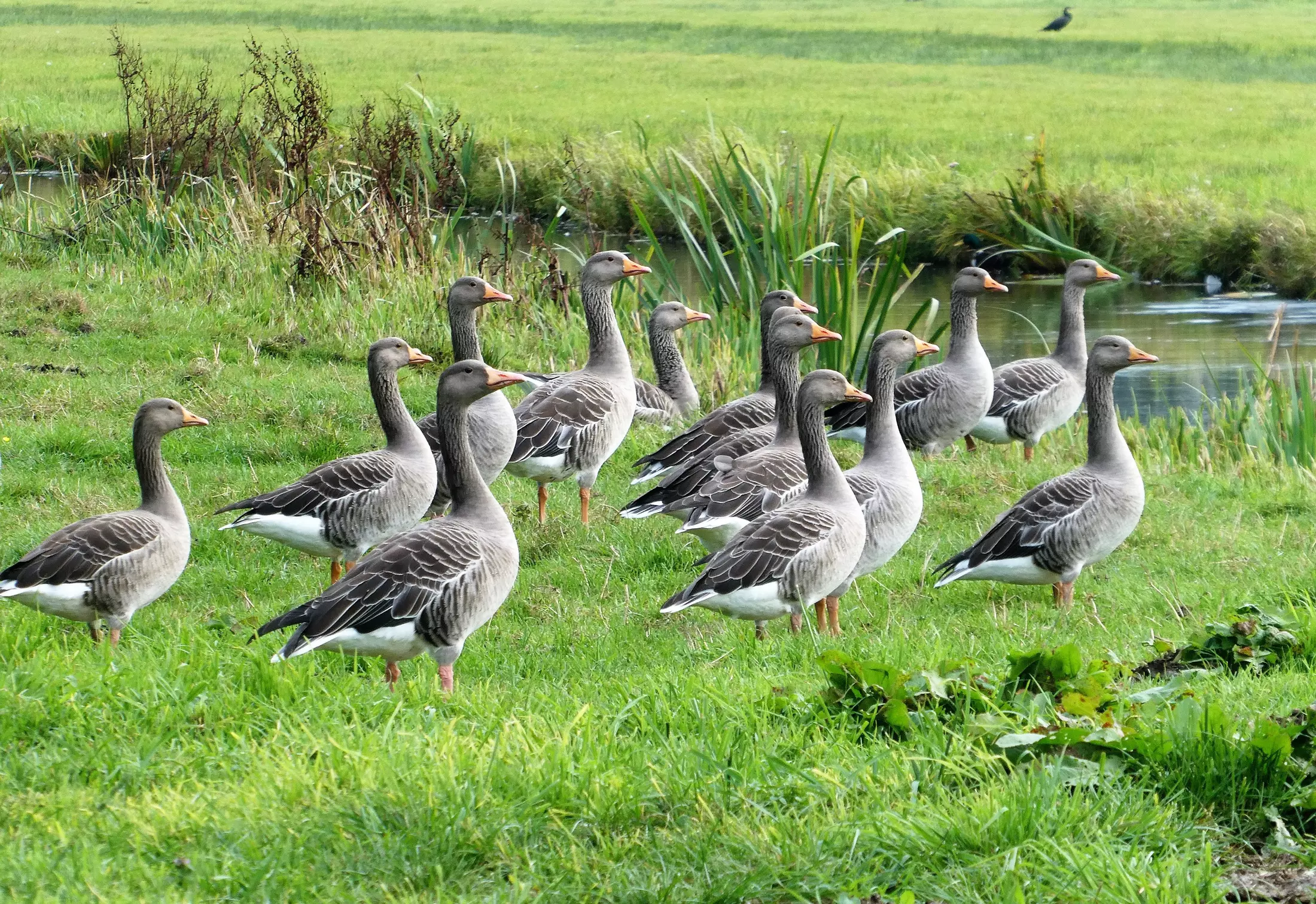
Goose
Goose eggs have a rich, strong flavor. You can use them any way you would use a chicken egg—in baking or alongside other proteins for breakfast. Hard boil them and serve extra-large deviled eggs at your next gathering!

Emu
One emu egg equals about 12 chicken eggs—they’re big! And they’re beautiful. Their color can range from light teal to an almost-black emerald hue. They have a very thick shell, and you have to use a hammer to crack them open. They have a mild, chicken-egg-like flavor. They’re hard to come by. You can order them online, but they’re expensive, costing as much as $70 each.
Photography: Pinterest/Nance InWA

